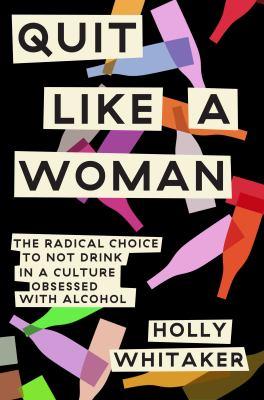
Quit like a woman : the radical choice to not drink in a culture obsessed with alcohol
For years, Holly Whitaker wore her workaholic-party-girl persona as a badge of honor, while privately feeling increasingly miserable. She believed that if she could just eat cleaner, save more money, and be more perfect, her life would finally snap into place. Yet all of her attempts to fix herself just added up to more chaos and the chaos added up to more pain and so she added more wine. When she finally had enough and started looking around for help, she was shocked to find that the only systems in place to support her quitting drinking were archaic, patriarchal, and ineffective for the unique needs of women. The Alcoholics Anonymous model focused on strict anonymity, making the ego the enemy, and surrendering power, voice, and agency to a male concept of God. But Holly instinctively knew that what she needed was a deeper understanding of her own identity, the courage to take control of her own life, and to be embraced by a supportive and vocal community. What's more, she could not ignore the ways that alcohol companies were targeting women, just as the tobacco industry had successfully done generations before. Holly became resolute--not only did she have to find her way out of her own addiction, she felt a calling to create something bigger, so that women anywhere on the drinking continuum might find their way as well.
Browse Related Items
- ISBN: 9781984825056
-
Physical Description
print
351 pages ; 22 cm - Edition First edition.
- Publisher [Place of publication not identified] : [publisher not identified], 2019.
Content descriptions
| Bibliography, etc. Note: | Includes bibliographical references. |
Additional Information



